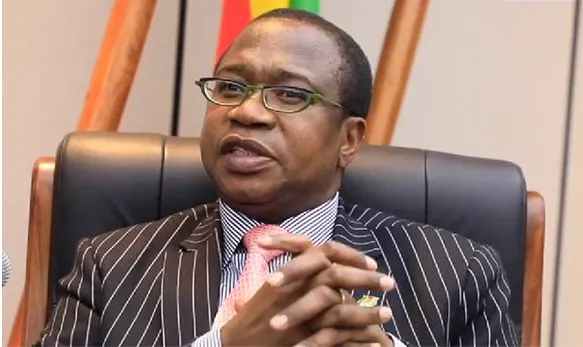
Faith Zaba FINANCE and Economic Development minister Mthuli Ncube is expected to present a mid-term fiscal review statement next week on Thursday.
The economy is in dire straits as the cost of living continues to spiral out of control.
Prices of goods, including basic commodities, critical medical drugs and rentals have soared by more than 300% in the past weeks.
The Zimbabwean dollar (Zimdollar), continues to depreciate. It’s on a free-fall with the parallel market rate ranging between a staggering ZW$800 and ZW$850 to US$1.
The Zimdollar has also weakened on the foreign currency auction floor each week.
It now stands at US$1: ZW$403,40.
The conflict in Russia and Ukraine has worsened an already complicated economic situation as global fuel prices have been spiking. Supply chains have been disrupted.
The macroeconomic situation remains volatile.
- Chamisa under fire over US$120K donation
- Mavhunga puts DeMbare into Chibuku quarterfinals
- Pension funds bet on Cabora Bassa oilfields
- Councils defy govt fire tender directive
Keep Reading
It negatively affects livelihoods and access to food, especially among poor households.
This is compounded by the United States dollar being the preferred currency of trade. Most commodities and services are either charged in USD or parallel market rates are applied for Zimdollar payments.
The implosion has been catastrophic.
This raises the risk of stagflation, which is characterised by slow growth rate; rising annual inflation, now at 191% as of June; a depreciating foreign exchange; and declining employment, real wages and consumer spending.
The economic downturn has been exacerbated by impact of the Covid-19-induced lockdowns.
Ncube is walking on a tight rope and a lot is expected of him. Ordinary Zimbabweans expect a people-centred review while industries want the government to inject crucial packages to reboot faltering output.
The bailouts relates to a US$30 million tranche pledged for industrial recovery from the US$958 million International Monetary Fund (IMF) windfall, which was released in September last year.
The IMF package was part of about US$650 billion worth of special drawing rights injected into the global economy to help economies restart following Covid-19-induced downturns and bankruptcies.
The government in 2020 promised to release ZW$18 billion in relief package to assist companies that had run out of resources to sustain operations at the height of the pandemic.
Ncube needs to put in place measures that boost the citizens’ spending power.
As the Confederation of Zimbabwe Industries (CZI) stated in its 2022 mid-term budget review submission: “Industry needs a spending population to thrive, hence the 2022 national budget should prioritise increasing the spending power of the population”.
Ncube needs to increase the tax-free threshold, which is currently at ZW$25 000 (US$61 at auction rate and US$31 at parallel market rate).
He must increase the minimum wage for domestic workers and farmers. There is a now demand for government subsidies on examination fees, stationery and other school expenses.
There has not been a greater time than now for government to offer health expos and pop-up hospitals in communities for check-ups and screening of diseases.
Public hospitals and clinics need to stock critical drugs as many chronic patients cannot afford life-saving medication.
Zimbabwe is an agriculture economy.
This calls for timeous provision of farming inputs to communal farmers.
Drug and substance abuse has become a health problem in communities.
The situation is now catastrophic. Kids as young as 11 years old are taking drugs across the country.
A tragedy is unfolding as the numbers of substance and drug abuse spike.
The government needs to take this issue seriously through the provision of drug rehabilitation centres in communities.
Ncube will also need to make provision to feed millions of disadvantaged people in both rural and urban areas.
If the economic decline continues unabated, the government will have to deal a restless populace.
The repercussions are self-evident.
The country will witness labour unrest, as the gap between the average wage and the poverty datum line continues to widen at an alarming rate.










